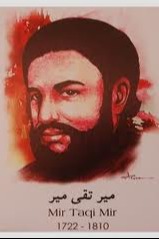
Personal info
Known for
Ultimate Talent
Gender
Male
Birthday
Location
Uttar Pradesh, India
Edit pageMir Taqi Mir
Biography
Mir Taqi Mir (1723–1810) was one of the most celebrated Urdu poets, widely regarded as the founding figure of classical Urdu poetry. Known for his ghazals filled with love, sorrow, and mysticism, Mir’s work laid the foundation for the emotional depth and lyrical sophistication that define Urdu literature.
🌿 Early Life and Background
Mir was born as Mir Muhammad Taqi in Agra, India. After losing his father at a young age, he was raised by his mother, who encouraged his early interest in poetry and literature. Mir later moved to Delhi, which was then the cultural hub of Urdu poetry.
His life was marked by personal losses, including the deaths of his wife and children, as well as the political upheavals of 18th-century India, which deeply influenced the tone of his poetry.
✍️ Literary Career
Mir is best known for his ghazals, but he also wrote qasidas, rubaiyat, and masnavis. His poetry is characterized by emotional intensity, simplicity of language, and lyrical beauty.
Major Themes:
Love and longing — both earthly and spiritual
Sorrow and loss — reflecting personal grief and social upheaval
Mysticism — exploring the human soul and divine connection
Life in 18th-century India — the fragility of human existence
His poetry often blends personal emotion with universal experiences, making it timeless and deeply relatable.
🌺 Style and Contribution
Mir Taqi Mir is renowned for:
Using simple yet profound Urdu, making poetry accessible and powerful
Mastering the ghazal form, setting a standard for future Urdu poets
Capturing human emotions with authenticity, especially pain, separation, and longing
Influencing later poets such as Ghalib and shaping the classical Urdu literary tradition
His works reflect a balance between emotional depth and artistic finesse, earning him the title “Khuda-e-Sukhan” (God of Poetry) in Urdu literature.
🕊️ Legacy
Mir Taqi Mir passed away in 1810 in Delhi. His ghazals and other poetic works remain central to Urdu literature, recited and studied by scholars, poets, and lovers of poetry alike.
Through his mastery of ghazal and emotional expression, Mir established the principles of Urdu poetry and left an enduring legacy that continues to shape Urdu literary culture centuries later.